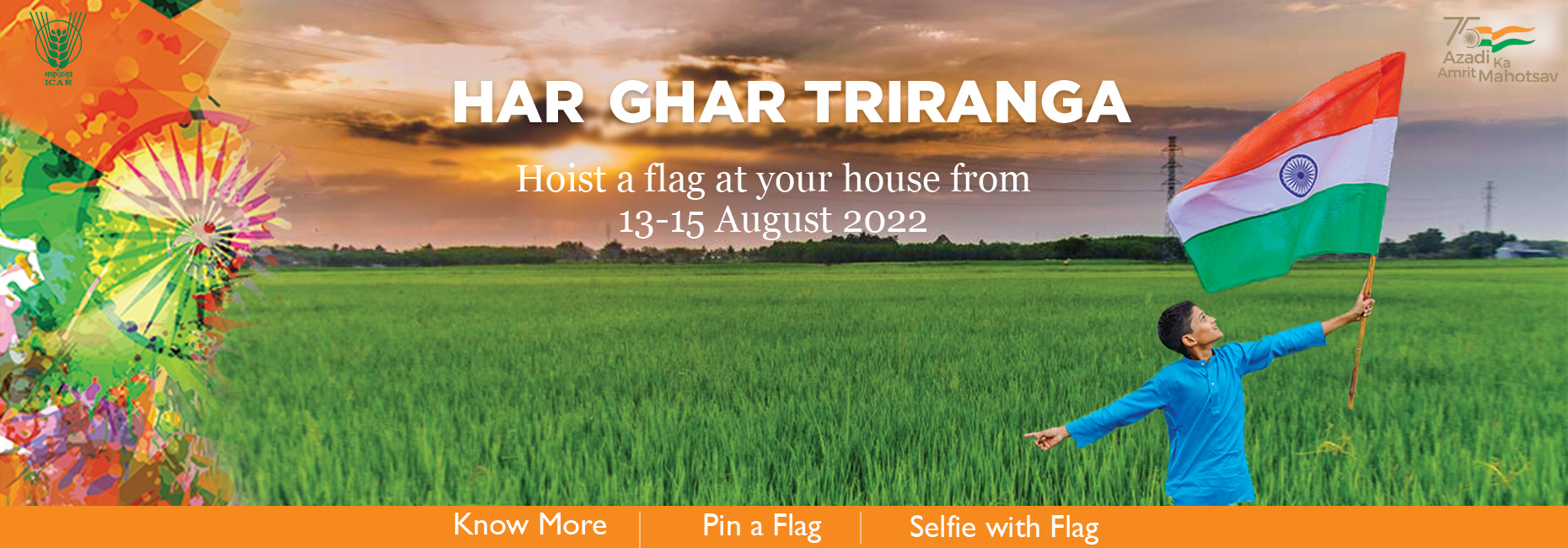Jan-March 2012
The ICAR and the State Agricultural Universities (SAUs), vested with the major responsibility of planning and imparting higher agricultural education, research and front-line extension, have contributed significantly towards growth of agriculture. Presently, there are 53 SAUs, five Deemed-to-be Universities (four of them are constituent Institutes of ICAR), four Central Universities (CUs) with constituent agricultural faculties and one Central Agricultural University (CAU) providing education in 13 disciplines at under-graduate level and more than 95 subjects at post-graduate level. The universities and other institutions, annually admit about 40,000 students with an outturn of 28,000 graduates, post-graduates and doctorates in agriculture and allied sciences in the country. About 55% students in a g r i c u l t u r a l universities are from rural background and, on an average, 36% are girl students.
The public sector educational and research institutions and promotional agencies have been traditionally the main source of employment for agricultural professionals. However, the private and services sectors are now also aggressively employing the graduates. Food processing, value-addition, storage and marketing have become increasingly important to agriculture producers, and thus, for agricultural education. The ever-growing requirements of food, nutrition, environment and livelihood security; changing consumer preference of food, advances in technology, globalization etc., further reinforce the need for a greater role of the SAUs in new technology and competent human resource development.
A study by the National Academy of Agricultural Research Management, Hyderabad (2011), reveals the substantial gaps between the demand (2020) and supply (2010) of manpower in agriculture and allied sectors to the tune of 50%. The shortfall could be higher in the case of rapidly growing sectors such as horticulture, dairy, veterinary and fisheries and that would require substantial trained manpower to achieve targeted growth. In terms of annual flows from the educational system, the current levels of graduate, post-graduate and Ph.D. output need to be increased by 2.3, 1.9 and 3.0 times respectively.
In its continued efforts towards improving the quality of education, the ICAR has contemplated renewal of agricultural education through a comprehensive National Agricultural Education Project. The project has twin objectives of: (i) achieving excellence and enhanced relevance and efficiency in the agricultural education system; and (ii) the agricultural universities to offer enhanced services to benefit farmers, rural women and other stakeholders. Major emphasis of the project would be on introducing systemic reforms in all institutions for improving internal efficiency, governance, quality assurance and establishing of priority setting, monitoring and evaluation mechanisms. The institutional development which will be implemented in agricultural universities on competitive basis, would focus on promotion of academic excellence through faculty and students development, centres of excellence and model colleges for rural development, networking of educational institutions and research organizations,and enhancing effectiveness of institutional extension services to farmers, rural women and agri-business
In order to attract talent in higher agricultural education and research, an innovative ASPIRE (Agriculture Sciences Pursuit for Inspired Research Excellence) scheme merits consideration. The meritorious 10+2 pass outs from colleges will be selected and provided scholarship for undertaking bachelor and master level education in agriculture and allied sciences. The agricultural education will need to be enriched with more of practical content for enabling the students to address the concerns of stakeholders, primarily the farmers and consumers. Universities should also plan on non-formal education especially in respect of knowledge and technological empowerment of vast section of work force in rural areas. This will expand the opportunities for offfarm employment and lead to total transformation in rural areas.
To improve the curriculum further, a one-year composite programme has been recommended with the name 'Rural Entrepreneurship and Awareness Development Yojana' (READY). READY will have three components: Experiential learning (EL), Rural Agricultural Work Experience (RAWE) and in-plant training/industrial attachment. Experiential learning will thus, provide the students an excellent opportunity to develop analytical and entrepreneurial skills and knowledge and confidence in their ability to design and execute the project work through meaningful hands on experience. In the changing scenario of limited availability of public financial resources, a policy to encourage private-participation in agricultural education is imminent for which some models may be developed and tried with education quality being the uppermost consideration. Thus, there is a greater need for a multifaceted strengthening of the higher agricultural education system. Our efforts must ensure that a competent and skilled manpower is developed for sustained growth of agriculture in the country.







 कृषि अनुसंधान एवं शिक्षा विभाग
Department of
कृषि अनुसंधान एवं शिक्षा विभाग
Department of










